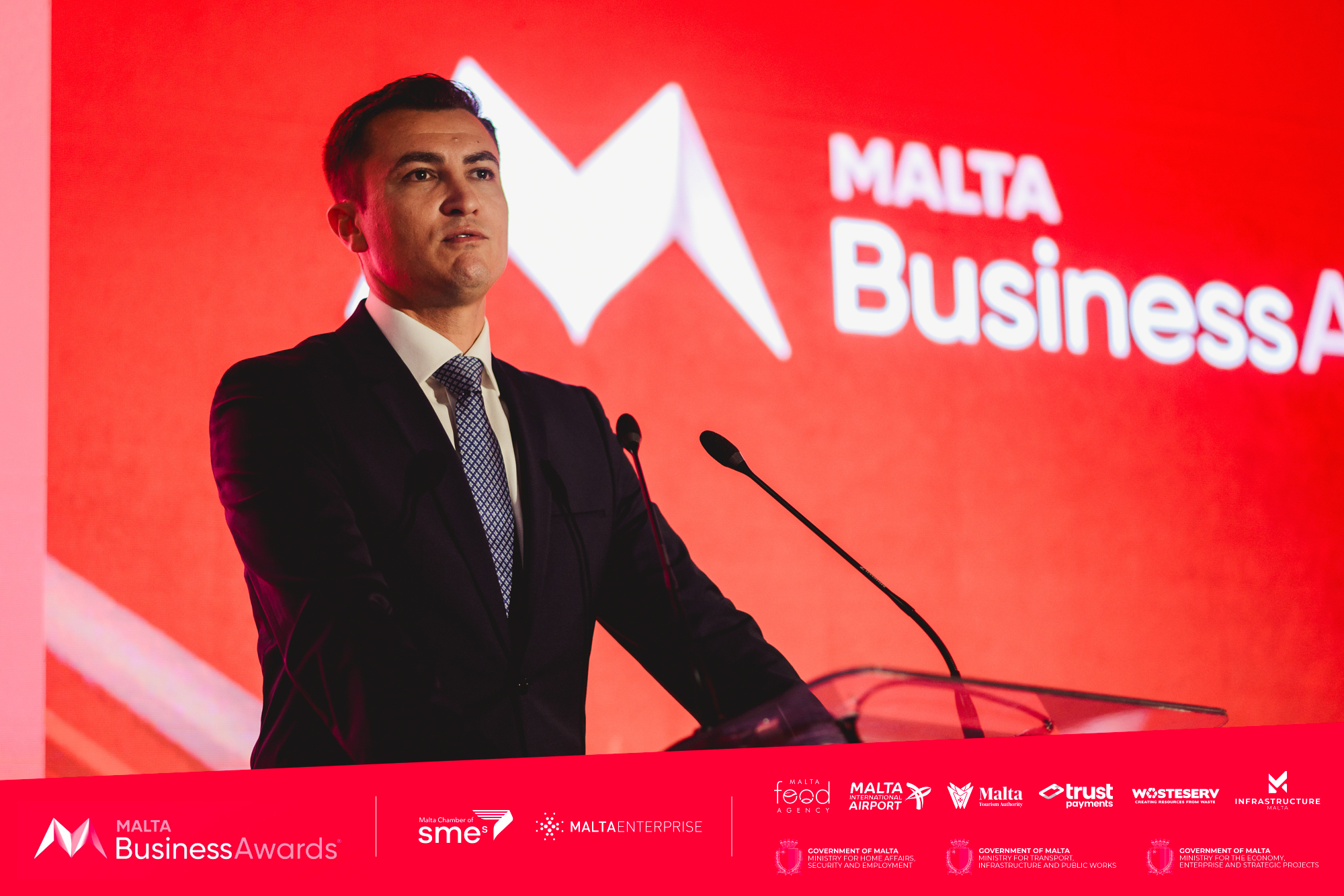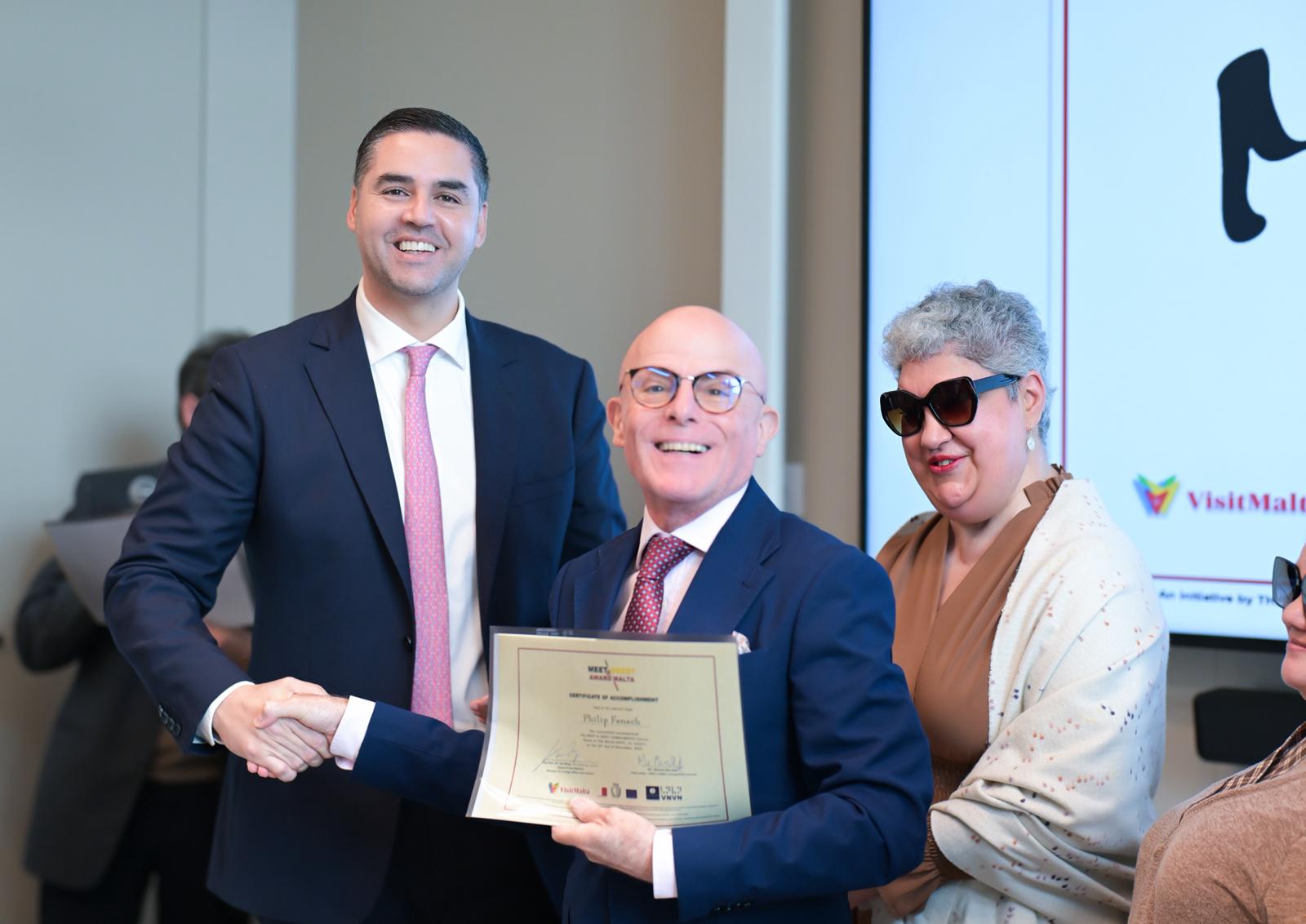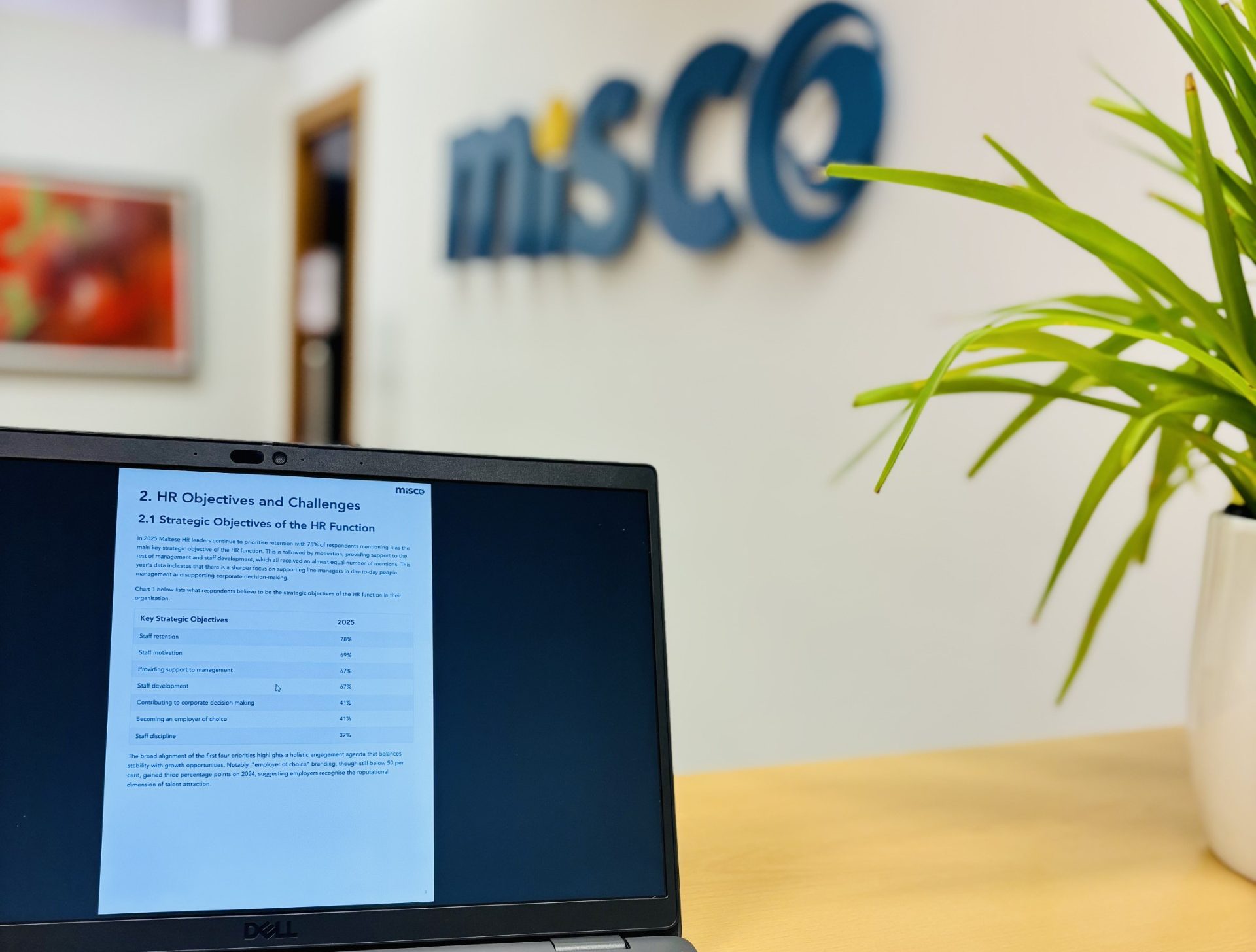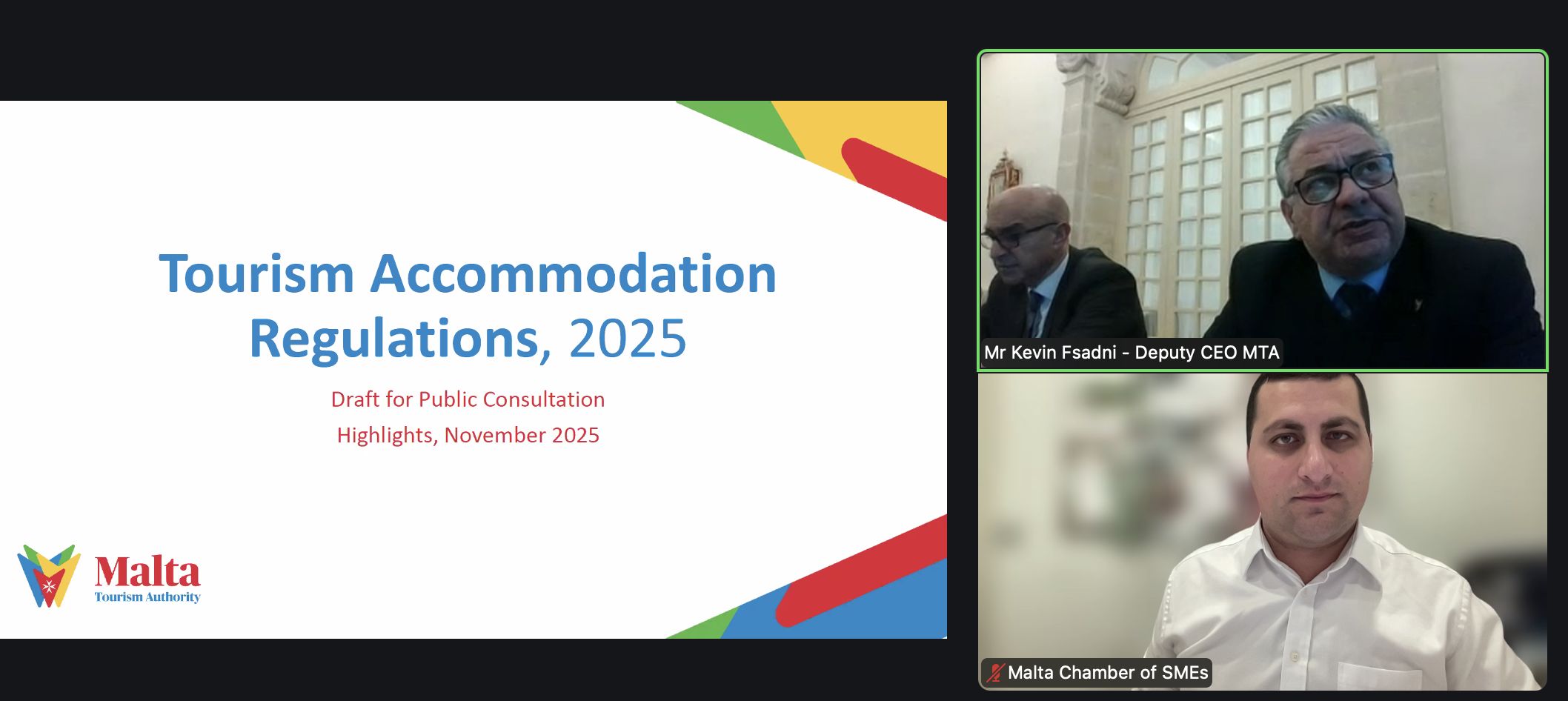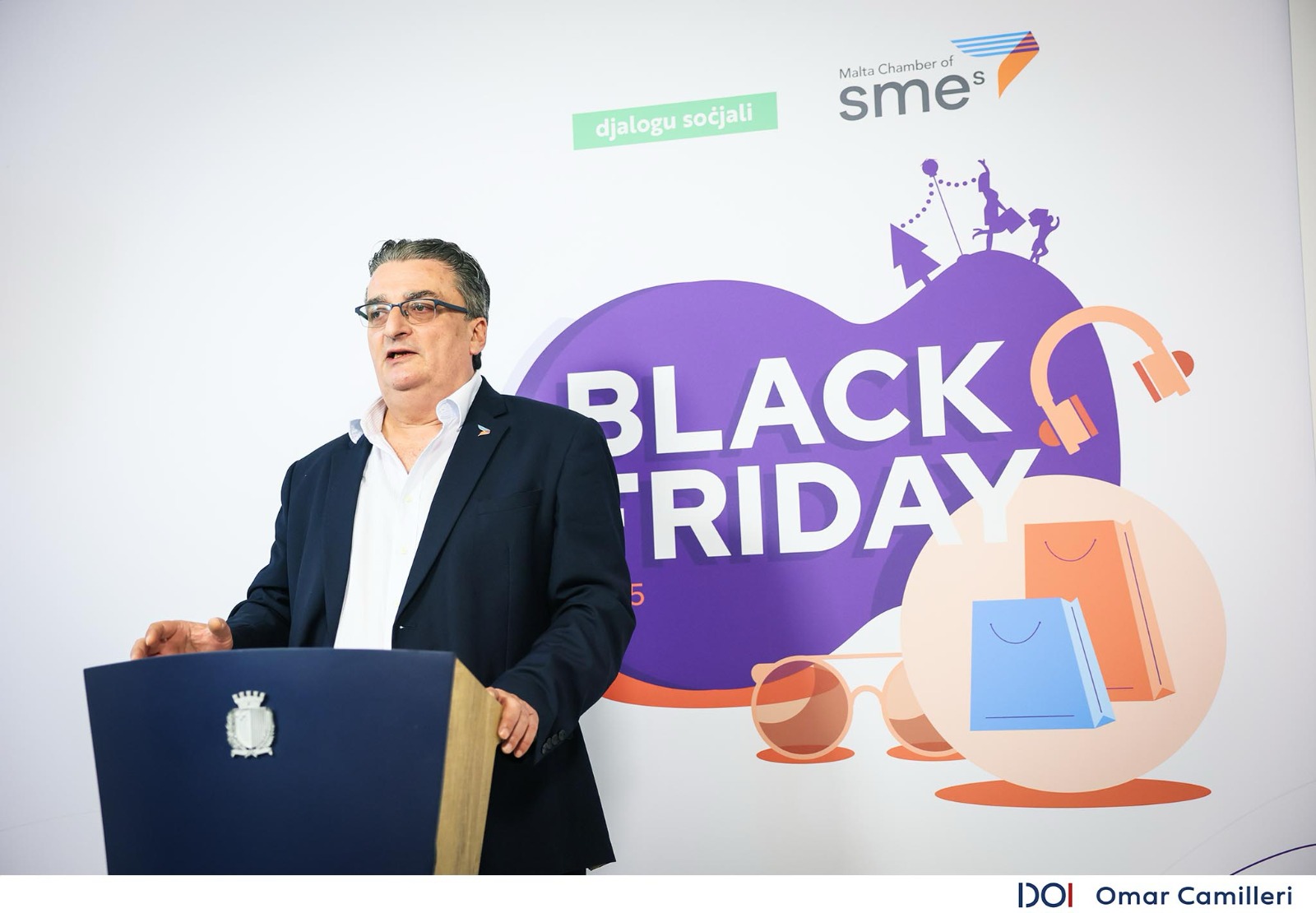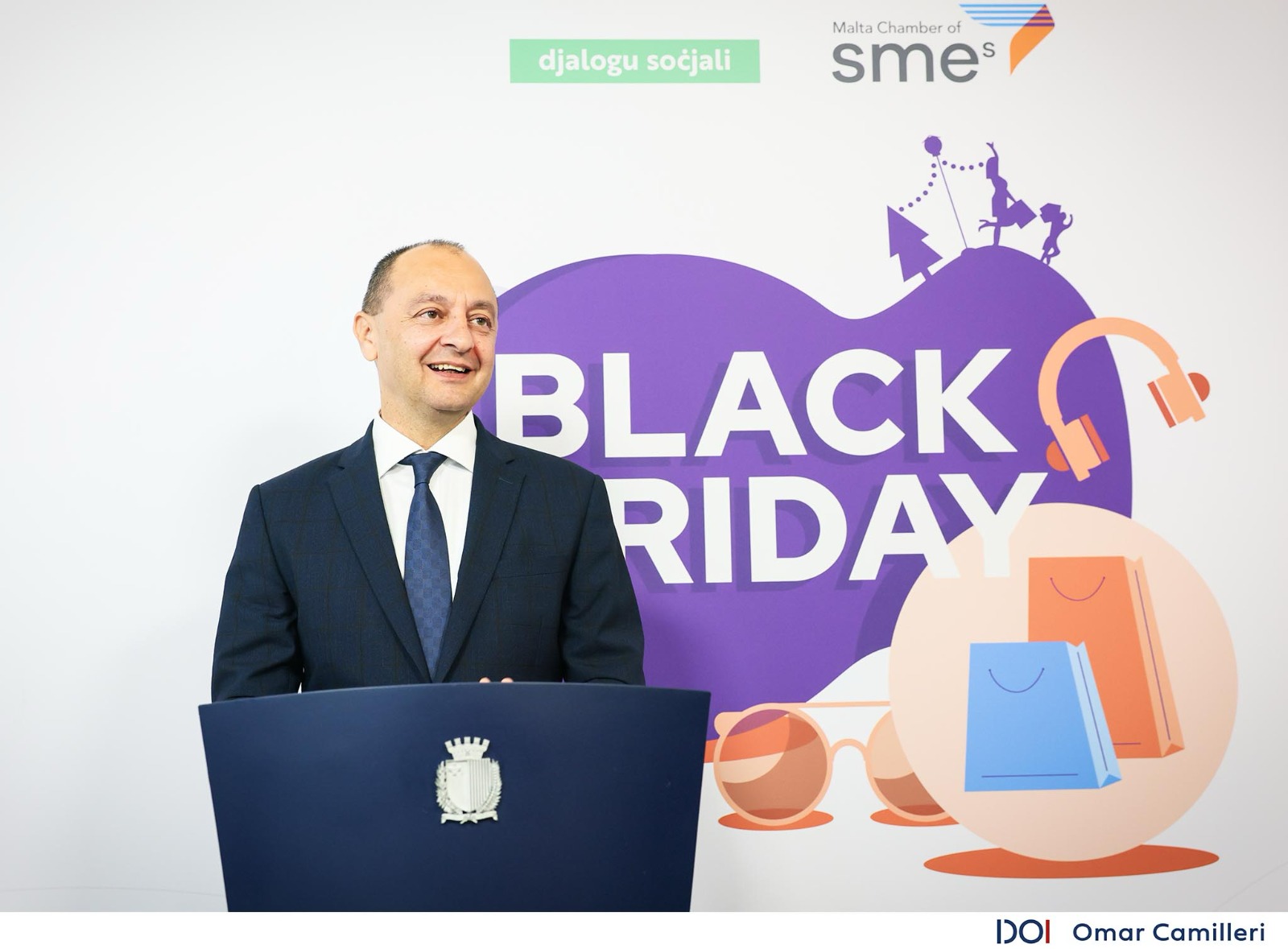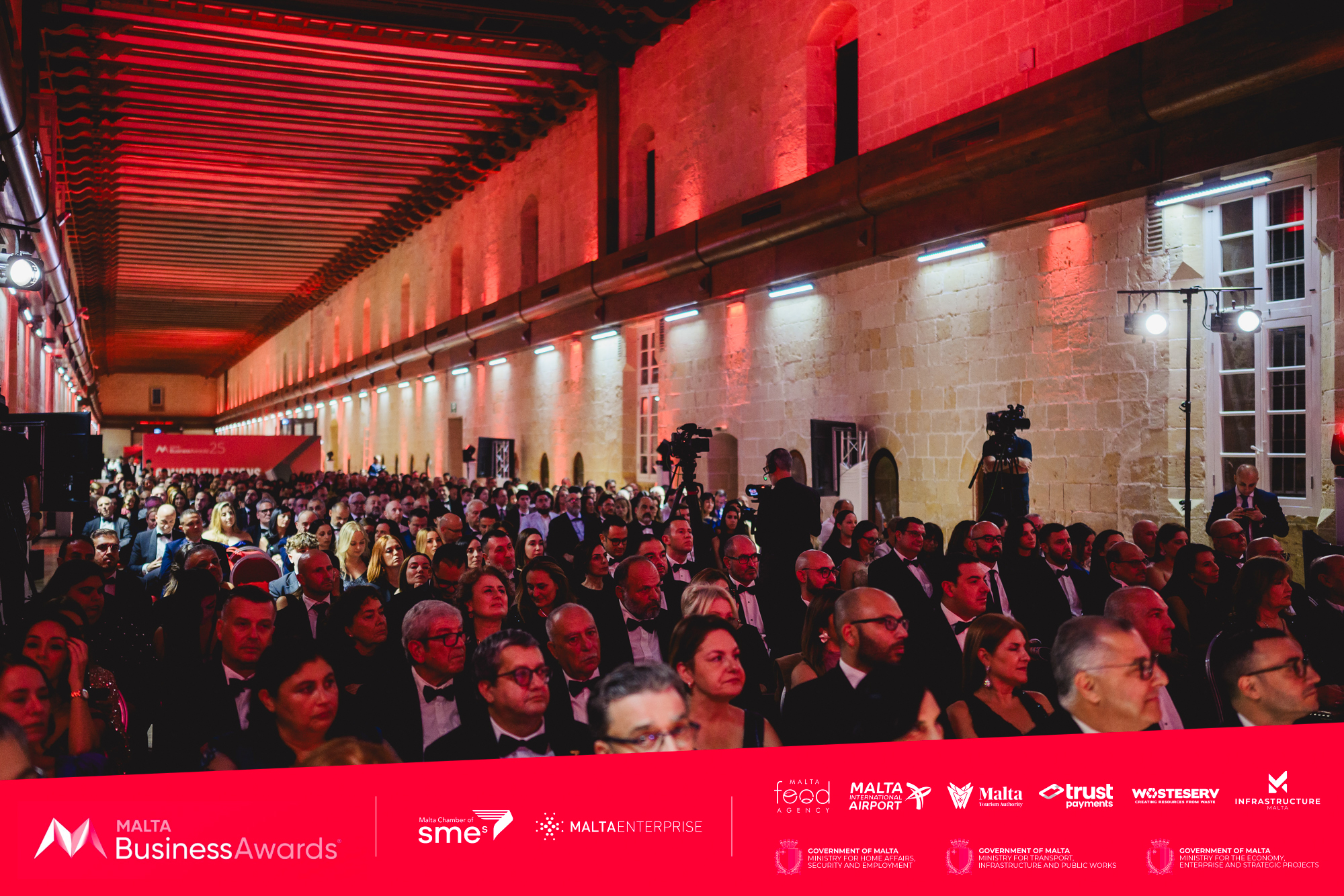
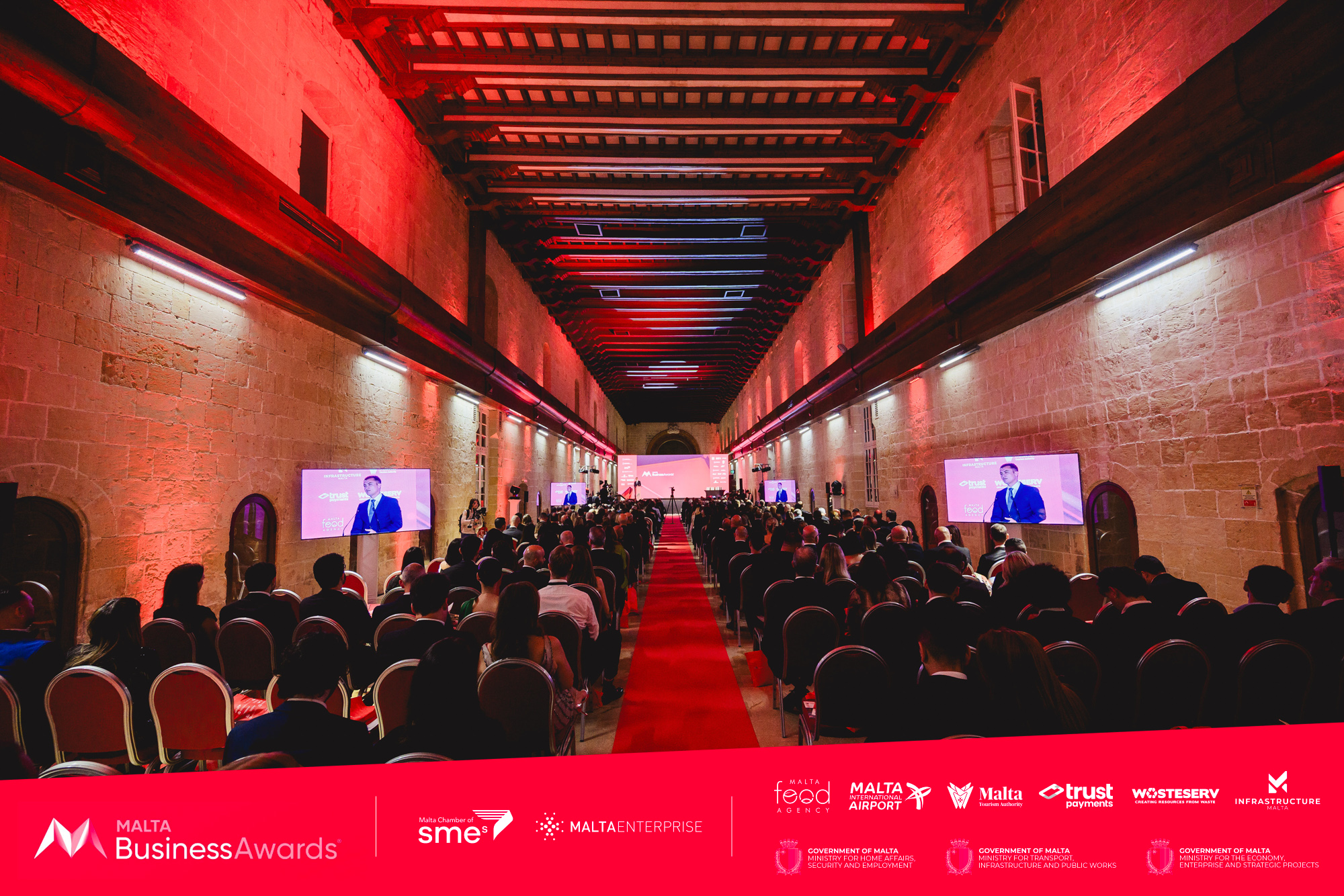
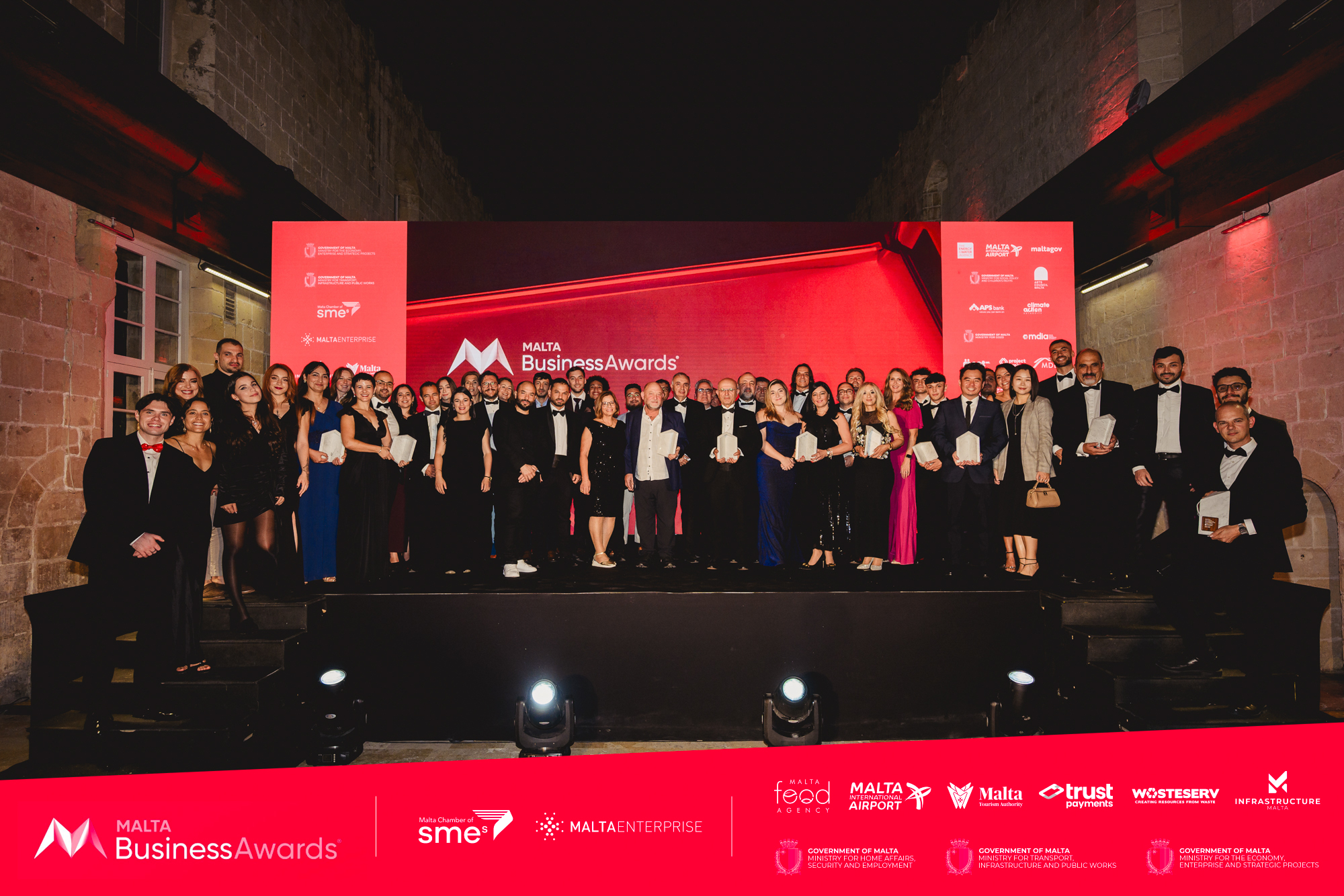
Twenty companies were named Gold Winners during the 4th edition of the Malta Business Awards, held on Friday, November 8th at the Mediterranean Conference Centre. The event celebrated excellence, innovation, and resilience across Malta’s business community.
From over 400 applications submitted last July, a rigorous adjudication process involving 19 independent committees narrowed the field to 95 shortlisted entries. Each shortlisted business then underwent an in-person interview with the adjudication panels, culminating in the selection of 57 finalists. The Gold, Silver, and Bronze winners were announced during this special evening, attended by nearly 500 guests.
These finalists represent the very best of Malta’s entrepreneurial spirit, from emerging startups and sustainable innovators to established industry leaders driving positive change.
As part of the promotional campaign, a 30-second video highlighting the positive initiatives of each finalist was produced and shared on the Malta Business Awards’ social media platforms.
We encourage all previous applicants, shortlisted participants, and finalists to apply for the 5th edition of the Malta Business Awards, which will take place on November 20th, 2026. Applications will open in Q2 of 2026, stay tuned at maltabusinessawards.mt.
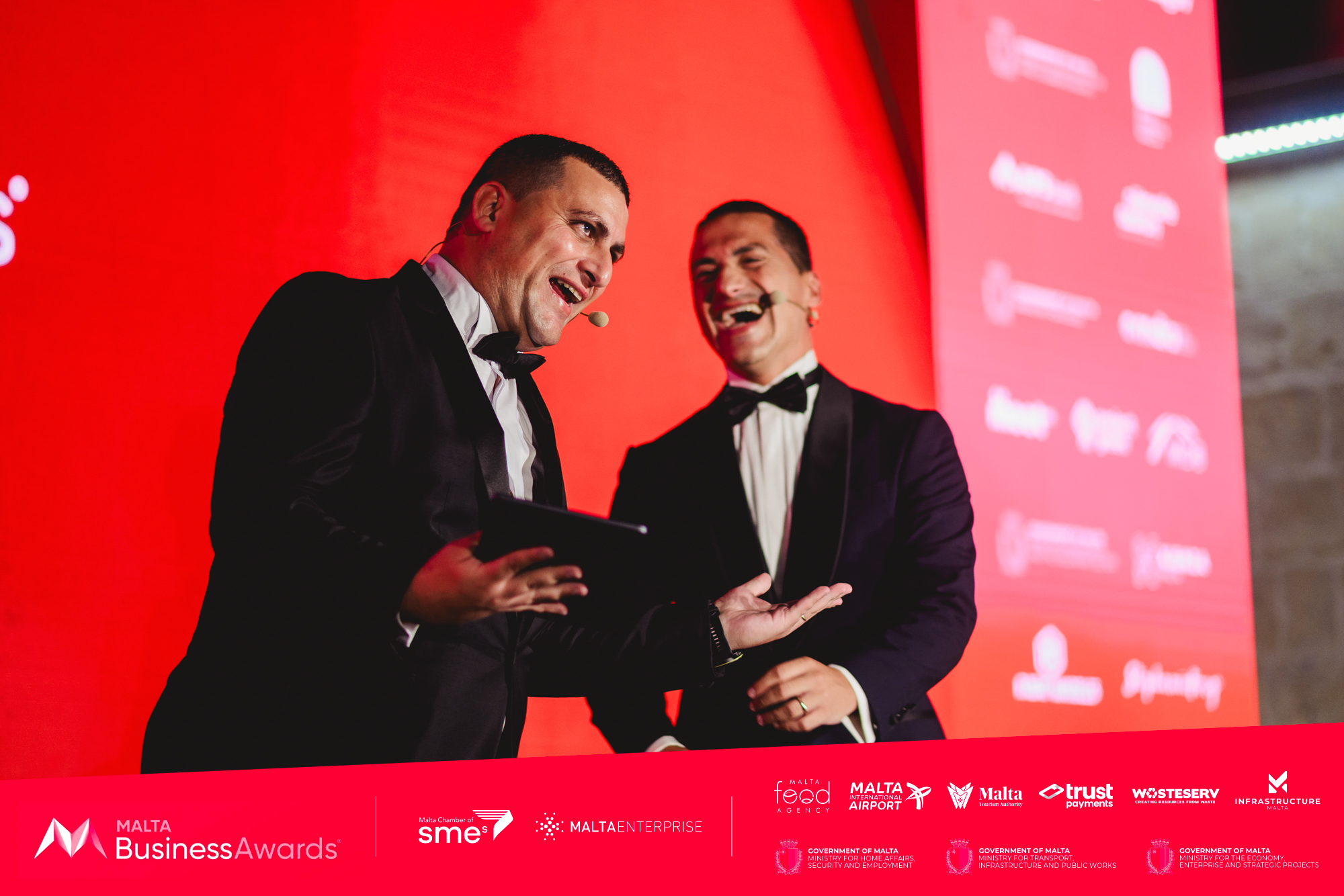
The winners are:
Social Impact – Up to 25 employees – supported by Ministry for Social Policy and Children’s Rights
Gold Award – MERILL RURAL NETWORK
Silver Award – WILLINGNESS TEAM
Bronze Award – MAMMA’S SUGAR
Social Impact Award – 26+ employees supported by Ministry for Inclusion and the Voluntary Sector
Gold Award – MALTAPOST PLS
Silver Award – SIGMA (VIKING PC HEALTH)
Bronze Award – SCOPE SOLUTIONS
Exceptional Wellbeing at the workplace supported by Ministry for Home Affairs, Security and Employment
Gold Award – MAPFRE MALTA
Silver Award – BANK OF VALLETTA
Bronze Award – SCOPE SOLUTIONS
Customer Service Excellence Award – supported by Infrastructure Malta
Gold Award – BRILLACE CAFE
Silver Award – PANINA
Bronze Award – BOYE DESIGNS & PROJECTS
Local Cultural Contributor – supported by Arts Council Malta
Gold Award – STUDJURBAN
Silver Award – UDJENZA
Bronze Award – RECOOP
Innovative and Sustainable Initiative Award supported by APS bank and Climate Action Authority
Gold Award – FILAMENT CORPORATION LTD
Silver Award – MANNA EV
Bronze Award – TW CONSULTING & TRADE LTD
Business Leader in Energy & Water Sustainability (Energy & Water Agency)
Gold Award – STMICROELECTRONICS MALTA LTD
Silver Award – BAXTER
Bronze Award – EDEN LEISURE GROUP
Leader in Quality Tourism (Malta Tourism Authority)
Gold Award – EXCLUSIVELY MALTA LUXURY TRAVEL
Silver Award – BALDACCHINO GROUP
Bronze Award – CASA GOURGION
Green Transport Initiative (Ministry for Transport, Infrastructure and Public Works)
Gold Award – MANNA EV
Silver Award – PARADISE BAY RESORT
Bronze Award – TW CONSULTING & TRADE LTD
Best Waste Management Strategy supported by Wasteserv
Gold Award – EDEN LEISURE GROUP
Silver Award – FILAMENT CORPORATION LTD
Bronze Award – REFAB LIGHT BLUE PARTNERSHIP
Innovative Digital Solution Supported by Malta Digital Innovation Authority
Gold Award – BIO AQUA GARDEN LTD
Silver Award – CASA GOURGION
Bronze Award – MALTA FREEPORT TERMINALS LTD
Family Business of the year – Up to 25 employees supported by Project Green
Gold Award – EXTREME EFFECTS
Silver Award – TACRIS LTD
Bronze Award – MIFSUD BROTHERS
Family Business of the year – 26+ employees supported by Malta Development Bank
Gold Award – BALDACCHINO GROUP
Silver Award – MAGRO BROTHERS (FOODS) LTD
Bronze Award – GREENS SUPERMARKET
Start-Up Business of the Year Supported by Trust Payments and Xjenza Malta
Gold Award – SPACEOMIX LTD
Silver Award – FYORIN
Bronze Award – MATTER OF CARE OPERATING LTD
Young Entrepreneur of the Year supported by Meet Inc
Gold Award – JOSEPH MATTHEW MUSCAT – 4JM SOLUTIONS
Silver Award – ALEXANDRA SCIBERRAS – INVENT 3D
Bronze Award – REUBEN CAMILLERI – IOT SOLUTIONS
Gozo Business of the Year supported by Ministry for Gozo
Gold Award – CUSTOMIZE NATION
Silver Award – AGIUS GROUP
Bronze award – SISU TOURS
Female Entrepreneur of the Year supported by Gov.mt
Gold Award – ALEXANDRA SCIBERRAS – INVENT 3D
Silver Award – MURIEL GRECH – MG PROJECTS
Bronze Award – CHER ENGERER – POLARIS
Small Business of the Year up to 25 employees supported by Malta Food Agency
Gold Award – FREEHOUR
Silver Award – IOT SOLUTIONS LTD
Bronze Award – POTS
SME of the Year (26+ employees) supported by Malta Enterprise
Gold Award – SIGMA
Silver Award – AQUABIOTECH GROUP
Bronze Award – 4JM SOLUTIONS
